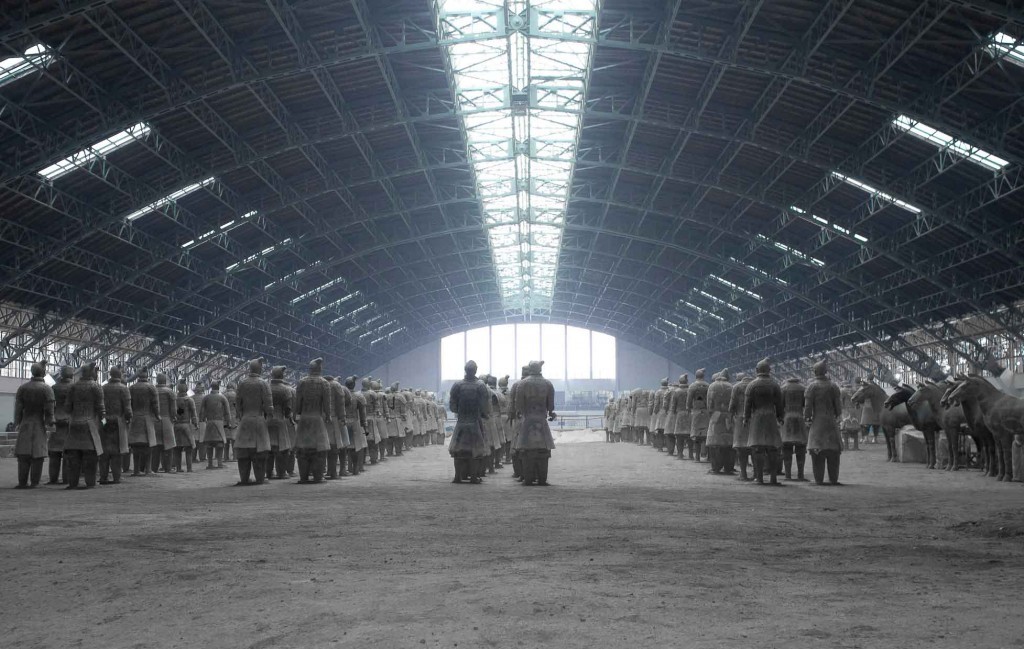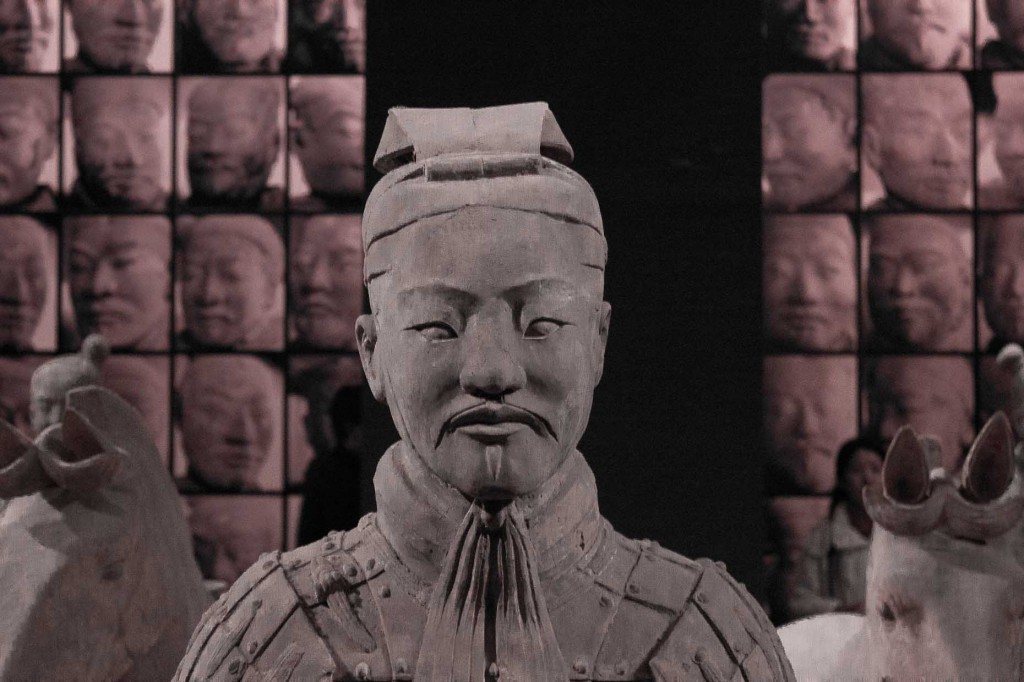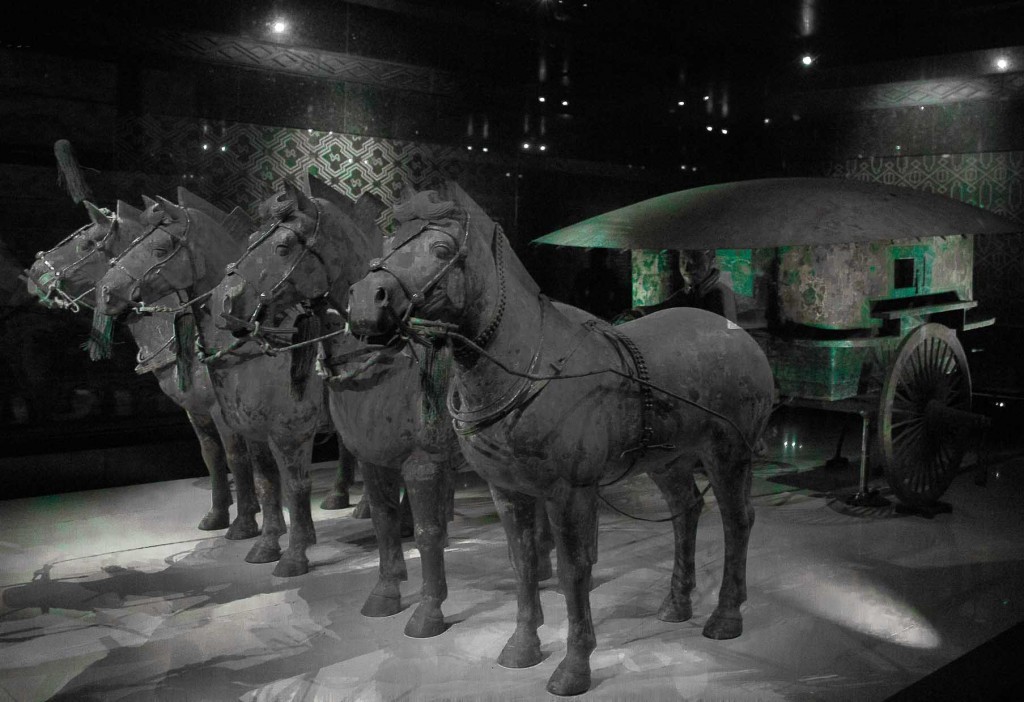The Friday Photo: Terracotta Underworld
Lined up as if for battle, on soil that still covers 8000 or so of their comrades, the Terracotta Warriors, like Angkor Wat, Uluru and the Parthenon, make your jaw, quite honestly, drop.
More than 2000 years old, designed never to be seen, they are, well, awe-inspiring.
Is each of them a portrait of a real, live member of the emperor’s Imperial Guard? Looking at their features, their expressions, it’s easy to believe.
Yet, in a way, what lies under the ground is as amazing as what lies above it. Maybe even more so.
Shi Huang became king of the Chinese state of Qin aged only 13 — and started work on his mausoleum that same year. Archaeologists have found instruments of torture used to “motivate” the many thousands of workers who laboured on the site.
By the time he died, having unified China for the first time, his city of death was more than ten times the size of the walled City of London. Most of its secrets are still underground.
Shi Huang’s ancestors took human sacrifices to their grave. He recreated China with pools of mercury for rivers and lakes, buried live horses and exotic animals to entertain him in the afterlife, and established everything from terracotta state departments to terracotta acrobats to keep him busy for all eternity.
And beautiful bronzes, like this half-size chariot and horses.
What happened to this strange, death-obsessed man, who believed his Reich would last ten thousand years?
Despite sending whole armies east in search of the elixir of eternal life, Shi Huang died in his 50s. Some say he was poisoned by a medicine he drank to confer immortality; others that he died in search of the islands of eternal youth; others that he simply passed away while inspecting his new empire.
And the empire? The terracotta army faces east, to guard against the Han kingdom. Within five years of his death, Qin Shi Huang’s son had murdered more than twenty of his siblings.
Han armies had sacked his mausoleum and killed the men who sacrificed to him. Today the vast majority of ethnic Chinese identify as Han, and Qin is all but forgotten.
Part 2 of our Songpan adventures is coming very soon…




isn’t it sad, what people do in their selfishness? it is amazing to me how they tortured them. ugh.
He had hundreds of thousands of indentured peasants working on projects from roads to the first version of the Great Wall, as well as the mausoleum. Definitely not a nice man, even by the standards of subsequent Chinese emperors.
Quite incredible. The terracotta warriors visited Sydney museum last year, I would have loved to have seen them. What an amazing experience it must have been to have seen them in China.
It is awe-inspiring to see them in context — and realise how much more there is to the site. They also have archaeologists working live under the hangar, which was fascinating, too…
Didn’t you love Xian? The Muslim section especially. If you are working your way up to Beijing do not miss tobogganing down the Great Wall!
TOBOGGANING? We’re actually in Beijing now. I’m a little behind on blogging… Where can you go tobogganing on it?!
It was in my China post – it is the Mutianyu stop – a bit further out from Beijing but totally worth it. Walk up to the top if you want to feel tough (or take the cable car like all the chinese) but definitely take the sled down. It only lasts 3 minutes but it was the highlight of my then 12 yr old daughter’s entire trip to China.
Damn. We missed it. Bejing was a bit of a bummer for us, to be honest. I had a stinking cold which floored me quite badly, plus a deadline, so we didn’t do nearly as much as we would have done without the cold.